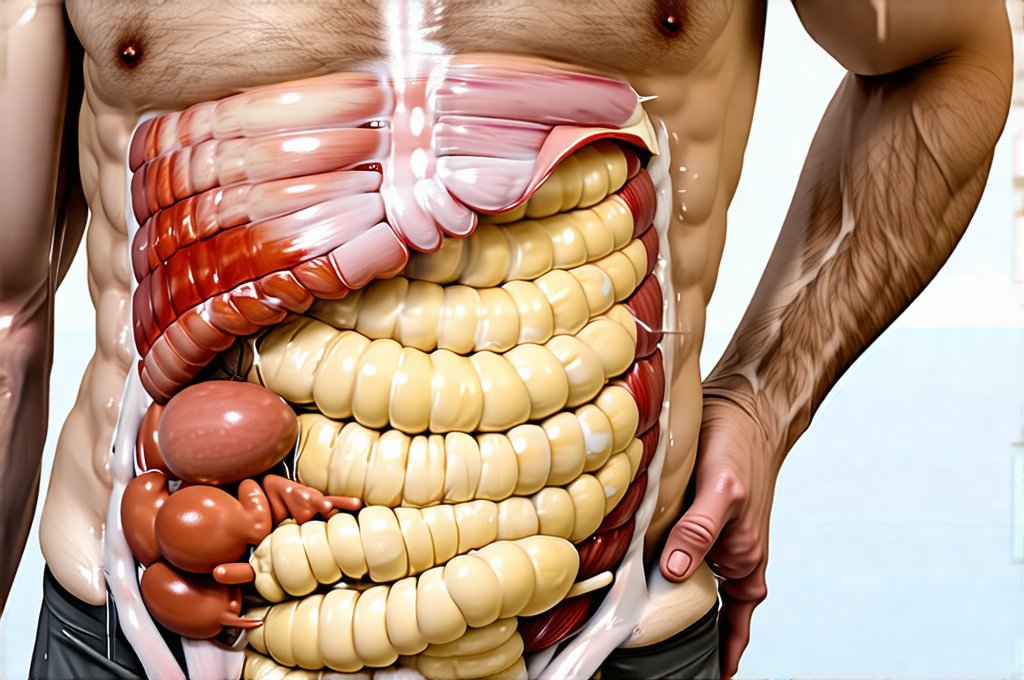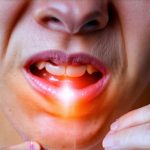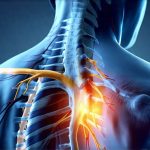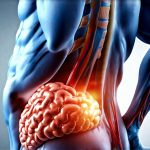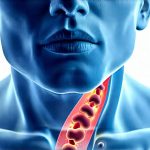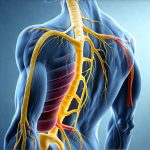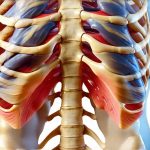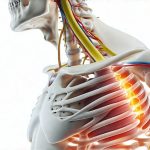Gastroesophageal reflux disease (GERD) is an incredibly common condition affecting millions worldwide. Many people associate GERD with heartburn and acid indigestion – and rightly so, as these are hallmark symptoms. However, the manifestations of GERD can be surprisingly diverse, extending far beyond the typical burning sensation in the chest. One less commonly recognized symptom that’s gaining increasing attention is shoulder pain, particularly after a large meal. This seemingly unrelated connection between digestive health and musculoskeletal discomfort often leaves individuals perplexed and seeking answers, leading to misdiagnosis or delayed appropriate care. Understanding this link requires delving into the complex interplay between the esophagus, diaphragm, and even the vagus nerve.
The surprising association between GERD and shoulder pain stems from what’s known as referred pain. When acid reflux irritates the esophagus, the nerves serving both the esophagus and the shoulder can become simultaneously activated. The brain, struggling to pinpoint the exact source of discomfort, may interpret the signal originating in the esophagus as coming from the shoulder area instead. This is because these nerves share common pathways to the spinal cord and brain. It’s not that there’s anything physically wrong with the shoulder itself; it’s a case of neurological misinterpretation. Furthermore, the act of eating a large meal can exacerbate GERD symptoms, increasing the likelihood of this referred pain occurring. The pressure exerted by a full stomach can push acid upwards, intensifying esophageal irritation and triggering those shared nerve pathways. Considering dietary changes is often the first step – you might want to explore gut-friendly meal plan options.
Understanding the GERD-Shoulder Pain Connection
The relationship isn’t simply about referred pain though; it’s also connected to how our bodies react to discomfort and inflammation. When the esophagus is irritated by acid reflux, the body initiates a protective response which can involve muscle tension – not just in the chest but throughout the surrounding areas, including the shoulders and back. This tension is often an unconscious attempt to guard the inflamed region and limit movement that might worsen the sensation. Chronic GERD, therefore, can lead to persistent muscle tightness and even spasms, contributing to ongoing shoulder discomfort. The vagus nerve plays a key role here; it’s heavily involved in both digestive function and musculoskeletal control, meaning irritation along its pathway can manifest as diverse symptoms.
The timing of the pain is often telling. Individuals frequently report experiencing shoulder pain shortly after eating a large meal, or when lying down soon after eating. These scenarios are known to increase the risk of acid reflux because gravity and body position make it easier for stomach acid to travel upwards into the esophagus. This connection isn’t always immediately obvious, which contributes to why many people initially seek treatment for shoulder problems without considering digestive issues as a potential cause. It is vital to note that shoulder pain can have many causes, so it’s important to rule out other possibilities with a healthcare professional. If you experience symptoms after indulging, learning how to calm your stomach might offer relief.
Finally, consider the diaphragmatic influence. The diaphragm plays a crucial role in both breathing and esophageal function. GERD can affect the lower esophageal sphincter (LES) – the muscle that prevents stomach acid from flowing back up into the esophagus. A weakened or dysfunctional LES often means increased pressure on the diaphragm, leading to altered mechanics and potential referred pain patterns, including those felt in the shoulders.
Identifying Potential Causes of Shoulder Pain
It’s essential to differentiate between shoulder pain caused by GERD and other more common musculoskeletal issues. Shoulder pain stemming from GERD typically presents with certain characteristics that can help distinguish it:
– It often appears after meals, particularly large ones.
– The pain may be vague or diffuse rather than sharp and localized.
– It doesn’t usually worsen with specific shoulder movements (although existing muscle tension could contribute to this).
– It’s frequently accompanied by other GERD symptoms like heartburn, regurgitation, or a sour taste in the mouth.
However, these aren’t foolproof indicators. Other potential causes of shoulder pain include:
1. Rotator cuff injuries: These are common and can cause significant pain with movement.
2. Frozen shoulder (adhesive capsulitis): This condition involves stiffness and limited range of motion.
3. Bursitis: Inflammation of the bursae, small fluid-filled sacs that cushion joints.
4. Arthritis: Degeneration of joint cartilage.
A thorough medical evaluation is crucial to determine the underlying cause of your shoulder pain and rule out other potential conditions. This typically involves a physical examination and may include imaging tests such as X-rays or MRIs. Ignoring persistent shoulder pain without investigation can lead to delayed diagnosis and treatment for either GERD or an unrelated musculoskeletal problem. A well planned meal plan can help minimize symptoms.
Diagnosing GERD & Related Symptoms
Diagnosing GERD often begins with a review of your symptoms and medical history. Your doctor will likely ask about the frequency and severity of your heartburn, regurgitation, difficulty swallowing (dysphagia), and any other related symptoms you’re experiencing, including shoulder pain after meals. They may also inquire about lifestyle factors that could be contributing to GERD, such as diet, smoking habits, alcohol consumption, and stress levels.
More definitive diagnostic tests include:
* Endoscopy: A thin, flexible tube with a camera is inserted into the esophagus to visualize any inflammation or damage.
* Ambulatory reflux monitoring: This involves placing a device in the esophagus to measure acid exposure over a period of 24-48 hours.
* Esophageal manometry: This test measures the pressure and function of the esophageal muscles, helping to identify problems with the LES.
If GERD is diagnosed, your doctor will likely recommend lifestyle modifications and/or medication to manage your symptoms. These may include dietary changes (avoiding trigger foods like spicy or fatty meals, caffeine, and alcohol), weight loss if overweight, elevating the head of your bed, and taking over-the-counter or prescription medications such as antacids, H2 blockers, or proton pump inhibitors (PPIs). Addressing GERD can often lead to a significant reduction in referred shoulder pain. It may be helpful to learn how to recover after a flare up, as well.
Managing GERD & Reducing Shoulder Discomfort
Managing GERD effectively is key to reducing the likelihood of experiencing shoulder pain after meals. This involves a multi-faceted approach that addresses both lifestyle factors and medical interventions. Dietary adjustments are often the first line of defense:
– Identify and eliminate trigger foods.
– Eat smaller, more frequent meals rather than large ones.
– Avoid eating late at night.
– Limit caffeine, alcohol, and carbonated beverages.
Beyond diet, other helpful strategies include maintaining a healthy weight, quitting smoking, elevating the head of your bed during sleep (using blocks or a wedge pillow), and avoiding tight-fitting clothing that can put pressure on the abdomen. Stress management techniques such as yoga, meditation, or deep breathing exercises can also be beneficial, as stress can exacerbate GERD symptoms.
If lifestyle modifications aren’t sufficient to control your symptoms, medication may be necessary. Your doctor can recommend the most appropriate medication based on the severity of your GERD and your individual needs. It’s important to remember that medications are often used in conjunction with lifestyle changes, not as a replacement for them. Finally, if shoulder pain persists despite managing GERD, it’s essential to consult with both your doctor and potentially a physical therapist to rule out any underlying musculoskeletal issues and develop an appropriate treatment plan. Understanding low FODMAP meal plans can also support digestive health and minimize discomfort, as can a dedicated gut recovery meal plan.

